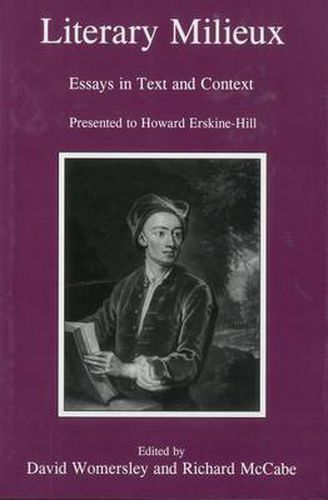Readings Newsletter
Become a Readings Member to make your shopping experience even easier.
Sign in or sign up for free!
You’re not far away from qualifying for FREE standard shipping within Australia
You’ve qualified for FREE standard shipping within Australia
The cart is loading…






In the wake of the formalist ‘New Critical’ consensus of the mid-twentieth century, a central and recurrent problem in the field of literary study has been that of precisely how the literary text was to be related to the various and proliferating contexts that now jostled for critical attention. The quality of balanced judgment was suddenly especially valuable. These essays range over the fields of Erskine-Hill’s own scholarship, from Shakespeare and early modern literature to Wordsworth, evincing in their own procedures and discriminations the influence of his own example: scrupulous care over the handling of evidence, an interdisciplinary impulse yoked always to a prizing of the literary (particularly of the poetic), a willingness to embrace an ambitious argument where it can be supported, a humaneness of temper, particularly in polemic. Latent within them all is a wrestling with that central problem of text and context that preoccupied Erskine-Hill throughout his career, and which is still the dominant issue in literary studies.
$9.00 standard shipping within Australia
FREE standard shipping within Australia for orders over $100.00
Express & International shipping calculated at checkout
In the wake of the formalist ‘New Critical’ consensus of the mid-twentieth century, a central and recurrent problem in the field of literary study has been that of precisely how the literary text was to be related to the various and proliferating contexts that now jostled for critical attention. The quality of balanced judgment was suddenly especially valuable. These essays range over the fields of Erskine-Hill’s own scholarship, from Shakespeare and early modern literature to Wordsworth, evincing in their own procedures and discriminations the influence of his own example: scrupulous care over the handling of evidence, an interdisciplinary impulse yoked always to a prizing of the literary (particularly of the poetic), a willingness to embrace an ambitious argument where it can be supported, a humaneness of temper, particularly in polemic. Latent within them all is a wrestling with that central problem of text and context that preoccupied Erskine-Hill throughout his career, and which is still the dominant issue in literary studies.